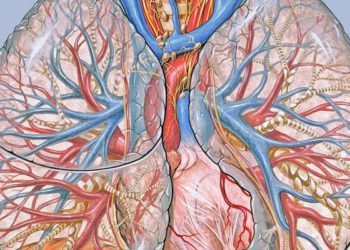Whole grain consumption associated with decreased all-cause, cardiovascular mortality
1. Based on the results of two prospective cohort studies in the US, the Nurses’ Health Study (NHS) and the Health Professionals Follow-Up Study (HPFS), increasing whole grain consumption was associated with lower all-cause mortality and cardiovascular disease (CVD) mortality, but not cancer-related mortality.
2. Furthermore, each additional serving of whole grain was associated with 5-10% reduced all-cause and CVD mortality.
Evidence Rating Level: 2 (Good)
Study Rundown: Whole grains have been linked to favorable health outcomes based on a variety of different mechanisms, including better glucose and lipid metabolism, anti-inflammatory effects, etc. However, the effect of whole grain consumption on overall mortality has not been rigorously studied. This study, which included data from two large, prospective cohort studies, was conducted to determine the overall and cause-specific mortality effects from whole grain consumption. Based on the results of this study, increasing whole grain consumption was associated with lower all-cause mortality and cardiovascular disease (CVD) mortality, but not cancer-related mortality. Furthermore, each additional serving of whole grain was associated with 5-10% reduced all-cause and CVD mortality.
The strength of this study was the fact that the investigators examined the results of two similarly focused studies, which increases the generalizability. However, the measured variables, especially the types of foods considered ‘whole grains,’ were somewhat different between the two studies evaluated. In addition, the self-reporting methodology introduced bias. Additionally, while the long follow-up periods were helpful in determining mortality benefits, the trends of foods and food labeling have changed in that period of time, which may have also introduced bias in the study.
Click to read the study, published today in JAMA Internal Medicine
In-Depth [prospective cohort study]: This study combined the results of two prospective cohort trials, the Nurses’ Health Study (NHS) and the Health Professionals Follow-Up Study (HPFS). The food intake log was derived from self-reported food frequency questionnaires (FFQs), which have been validated for use in these kinds of studies. Other health history was collected at baseline, next-of-kin were used to determine time of death, and medical records used to determine the cause of death. There were 24 years of follow-up in the NHS and 26 years in the HPFS, resulting in a total of 2,727,006 person-years of follow-up.
The pooled hazard ratios for high amounts of whole grain consumption suggested decreased all-cause mortality (HR 0.91; 95%CI 0.88-0.95; P for trend <0.001) and CVD mortality (HR 0.85; 95%CI 0.78-0.92; P for trend <0.001). The results for cancer-related mortality were not statistically significant. In addition, the investigators estimated that increasing an additional serving of whole grain (defined as 28 g/day) lowered all-cause mortality by 5% (95%CI 2-7%) and CVD mortality by 9% (95%CI 4-13%).
More from this author: Cardiac mortality paradoxically lower during times of national cardiology conferences, Active smoking cessation intervention may provide tangible results [Project CLIQ], Reperfusion therapy may be suboptimal for STEMIs requiring transfers, Statin therapy does not prevent osteoporotic fractures [JUPITER trial], Basic life support associated with greater survival in cardiac arrest
Image: PD
©2014 2 Minute Medicine, Inc. All rights reserved. No works may be reproduced without expressed written consent from 2 Minute Medicine, Inc. No article should be construed as medical advice and is not intended as such by the authors, editors, staff or by 2 Minute Medicine, Inc.







